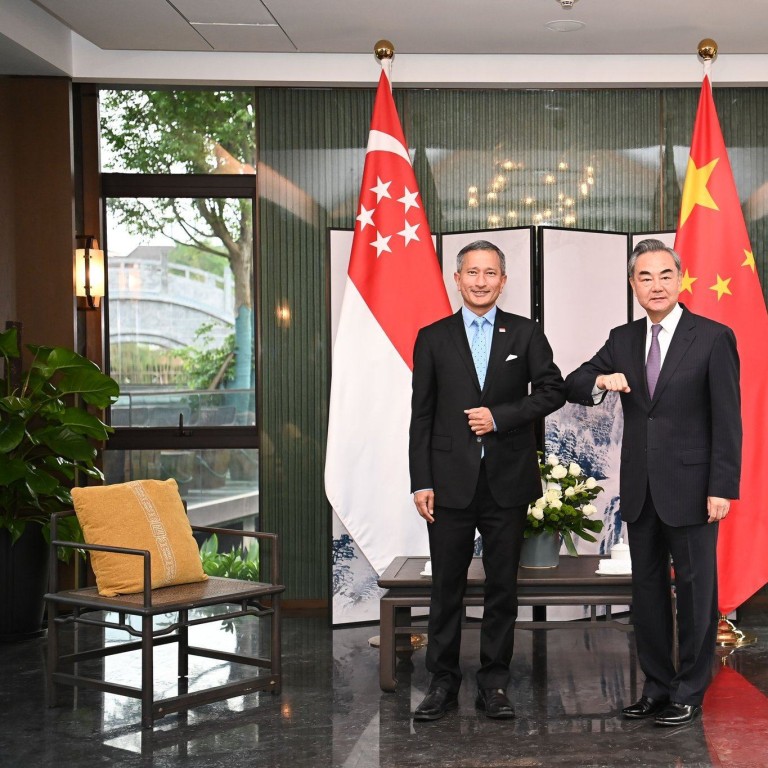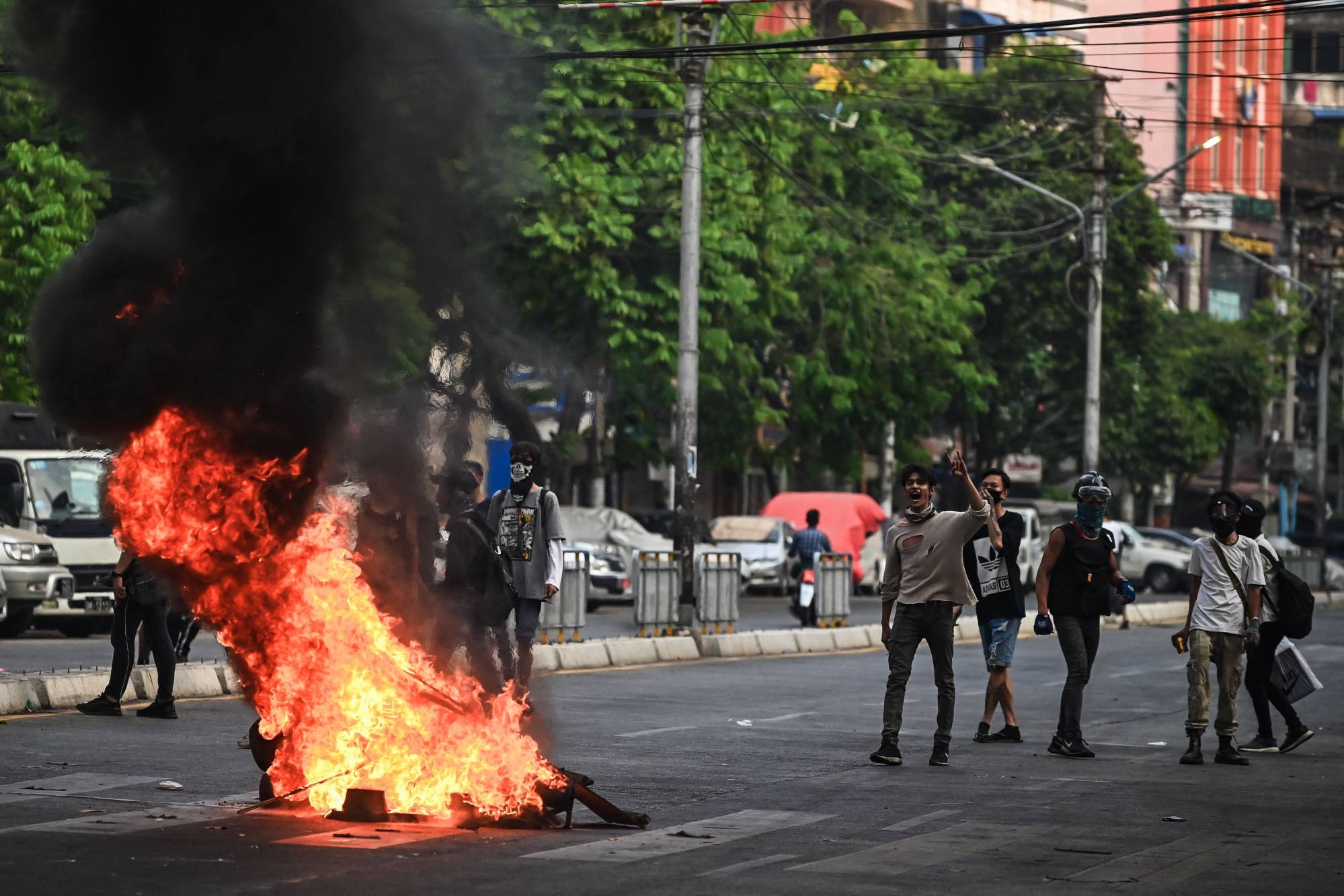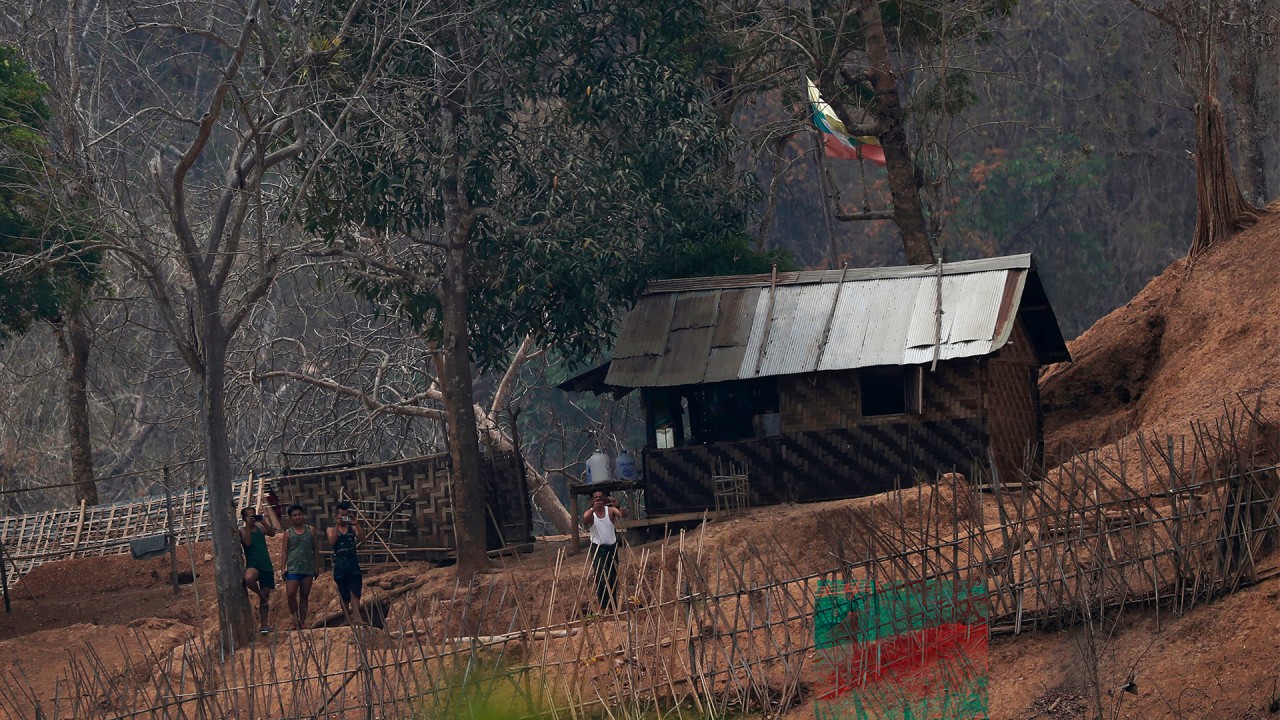
Why is China’s Wang Yi hosting four Asean ministers in Fujian but meeting them individually?
- Myanmar is expected to be on the agenda but all parties are careful not to give the impression it is a ‘minilateral’ meeting
- Singapore, Malaysia, Indonesia and the Philippines have been most vocal about Myanmar’s worsening crisis

Singapore’s foreign affairs ministry issued a statement early on Thursday saying that Balakrishnan and Wang discussed the “tragic situation” in Myanmar and expressed “alarm” over the continued use of lethal force by Myanmar’s military.
“The ministers called for a de-escalation of the situation, a cessation of violence and the commencement of constructive dialogue among all sides,” the statement said, adding that the two foreign ministers also discussed bilateral issues, including China’s proposal on the mutual recognition of health certificates for cross-border travel.

Similarly, it would go against the bloc’s policy for countries to conduct “minilateral” meetings without the presence of the Asean chair – currently Brunei – or all members, prompting talk that the meeting arrangements in Fujian show that all parties have been mindful of these norms.
René Pattiradjawane, an associate fellow at The Habibie Centre think tank in Jakarta who has studied Indonesia-China relations, said it was rare for separate discussions to be conducted if all leaders were meeting in the same place.
Pointing out that the meetings were being held soon after tense US-China talks in Alaska, Pattiradjawane said this could be China’s way of “dealing with Asean regarding big power competition and the rivalry between the US and China”.
He added that by inviting the four Asean ministers – whose countries do not border Myanmar – to Fujian, China was showing that it hoped to formulate a peaceful resolution to the crisis without interference from regional powers. “This will be a pressing issue to find peaceful resolutions before the situation in Myanmar gets out of control,” he said.
The meetings may not necessarily take place under an official Asean event, [but] China clearly has Asean in mind
Dylan Loh, an assistant professor of public policy and global affairs at Nanyang Technological University, suggested that the one-to-one meetings would likely feature a mix of regional issues as well as bilateral ones.
“The meetings may not necessarily take place under an official Asean event, [but] China clearly has Asean in mind,” he said, noting Beijing’s approach was always to engage the bloc collectively but also its members individually.
“My take is that these visits are an important diplomatic signal, both domestically and externally, because China wants to show that it has the support, friendship and backing of many countries – this is significant as China comes under increasing diplomatic pressure from the West,” he said. “It certainly does underline the diplomatic heft that China has in the region.”
Myanmar’s ethnic armed groups, and why the crisis could worsen
In an interview with Xinhua shared by Singapore’s foreign ministry ahead of the meeting, Balakrishnan said the city state could play a key role in China’s “dual circulation” economic strategy – aimed at spurring domestic consumption while encouraging foreign investments – and can also be a base for Chinese companies looking to expand into Southeast Asia, given the two countries’ strong trade and logistic links.
A statement from Malaysia’s foreign affairs ministry on Wednesday said Hishammuddin would discuss bilateral initiatives with Wang, with a focus on a post-pandemic agenda that includes restarting cross-border travel and strengthening vaccine cooperation. They would also discuss “a range of regional and international issues of mutual concern”, the statement added.
Tan See Seng, a professor of international relations at Singapore’s S. Rajaratnam School of International Studies said the talks were an opportunity for Beijing to assess the four countries’ positions on the new US administration’s approach to the disputed South China Sea. But they also constituted a Catch-22 situation for the Asean states.
“On the one hand, you do not want to turn down an invitation by China for a bilateral exchange on the South China Sea in order to try to influence the situation to better suit your interests and those of the region as a whole.
“On the other hand, you run the risk of playing to China’s strategy to keep Asean disunited on the South China Sea,” Tan said.
India, Thailand face looming refugee crisis amid fears of Myanmar civil war
The meetings are being held near Mount Wuyi in northern Fujian province, a Unesco World Cultural and Natural Heritage Site that is famed for its black and oolong teas.
“The free trade bloc could bring opportunities for both China and its neighbours after the signing of RCEP,” the broadcaster said, adding that Fujian has close historic and economic ties to many countries in Southeast Asia as a major source of migrants to their overseas Chinese communities.



